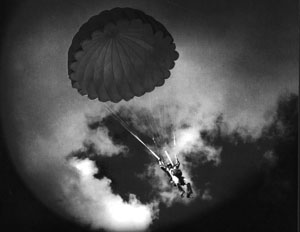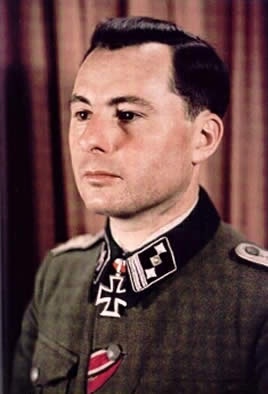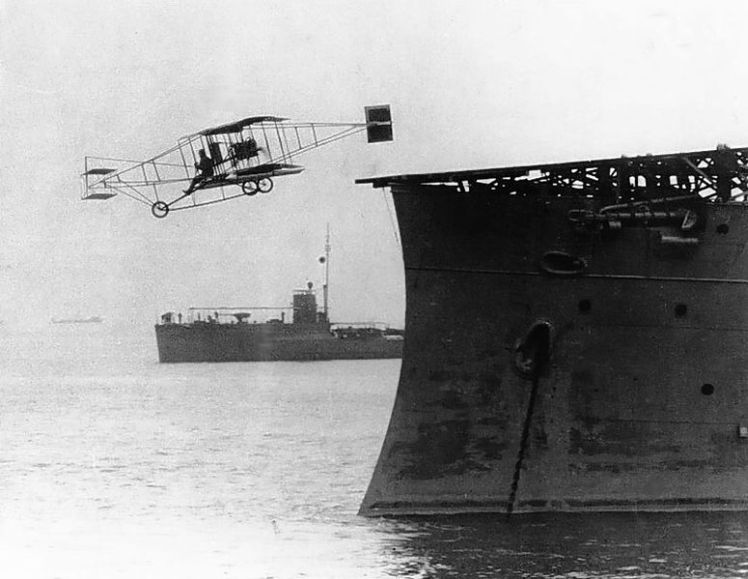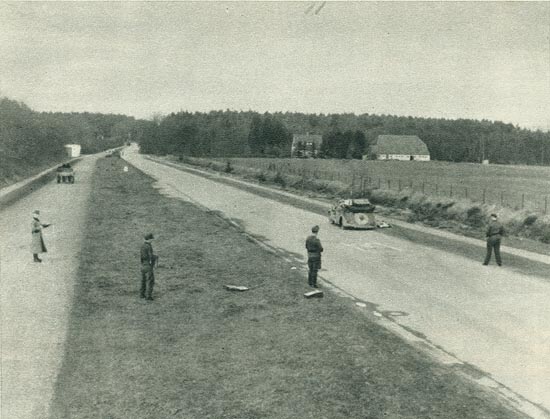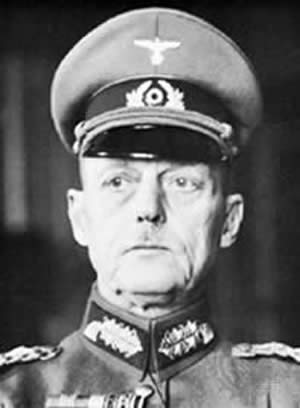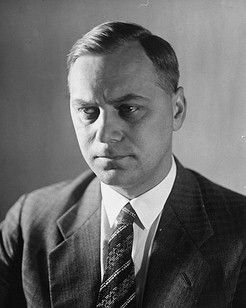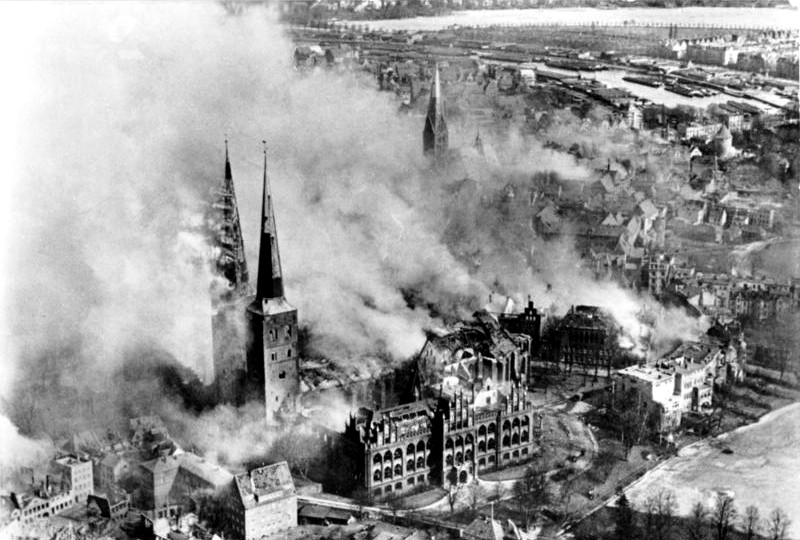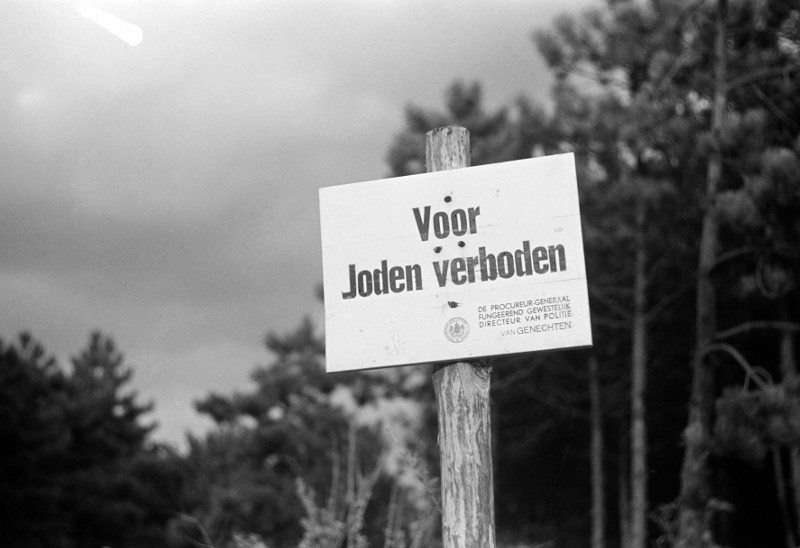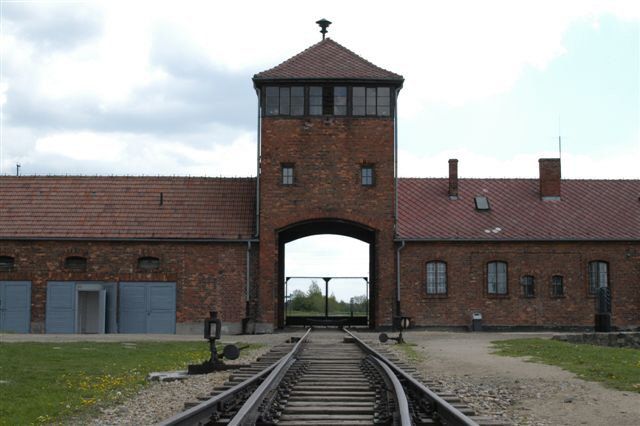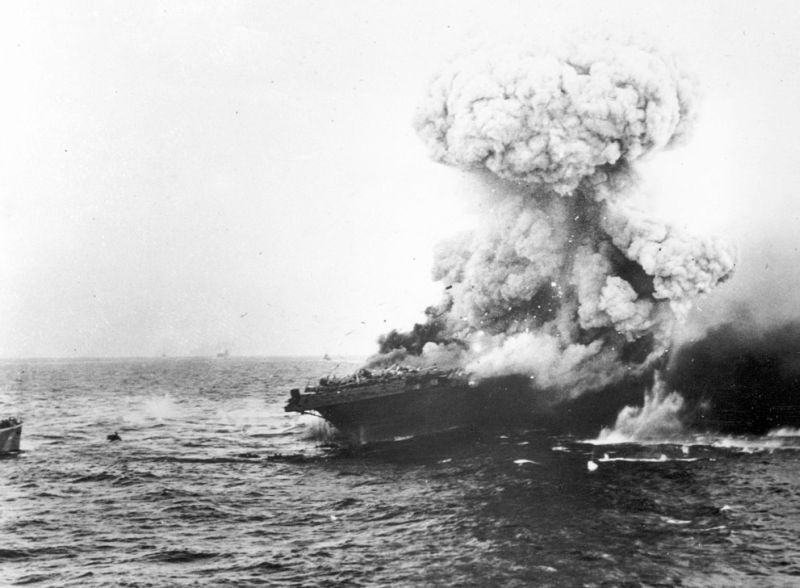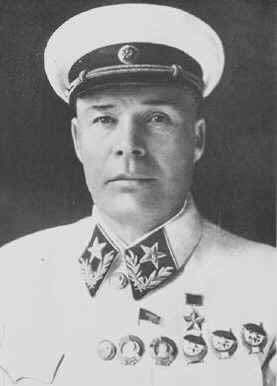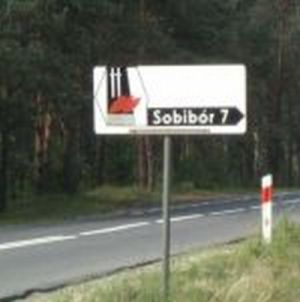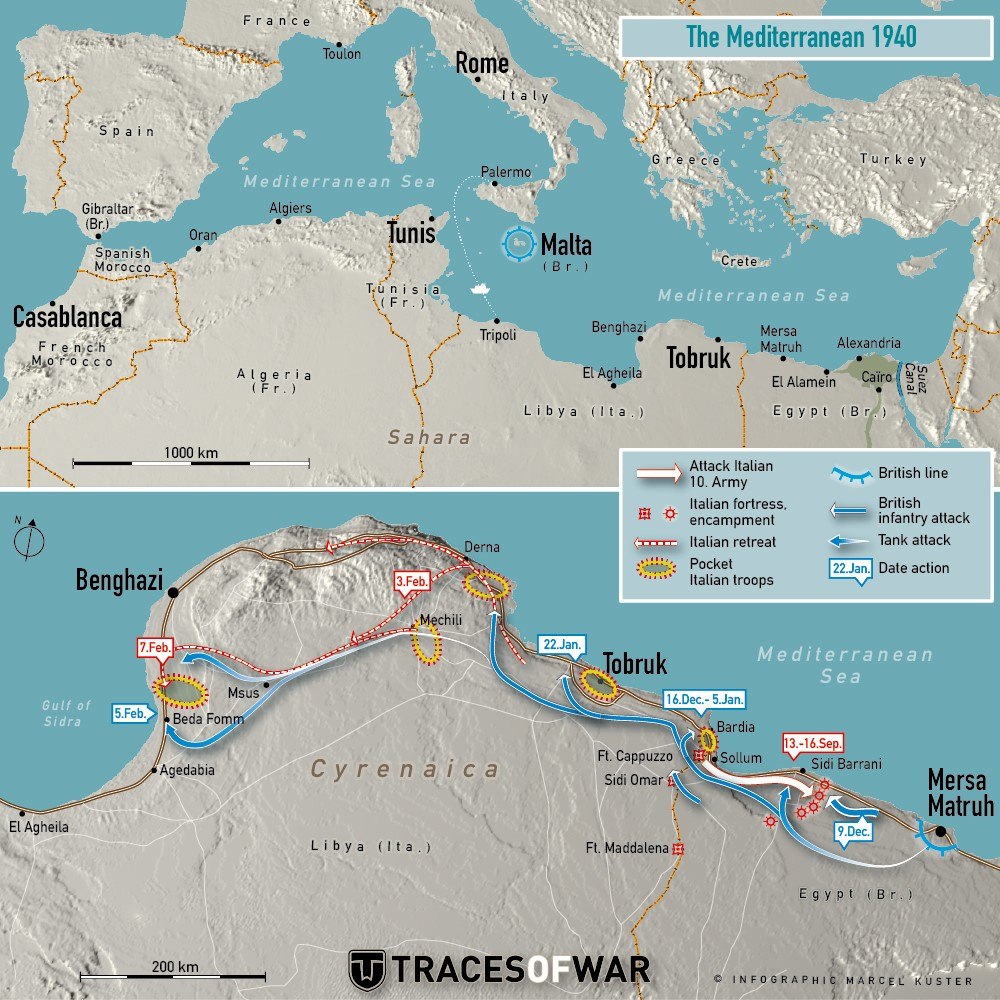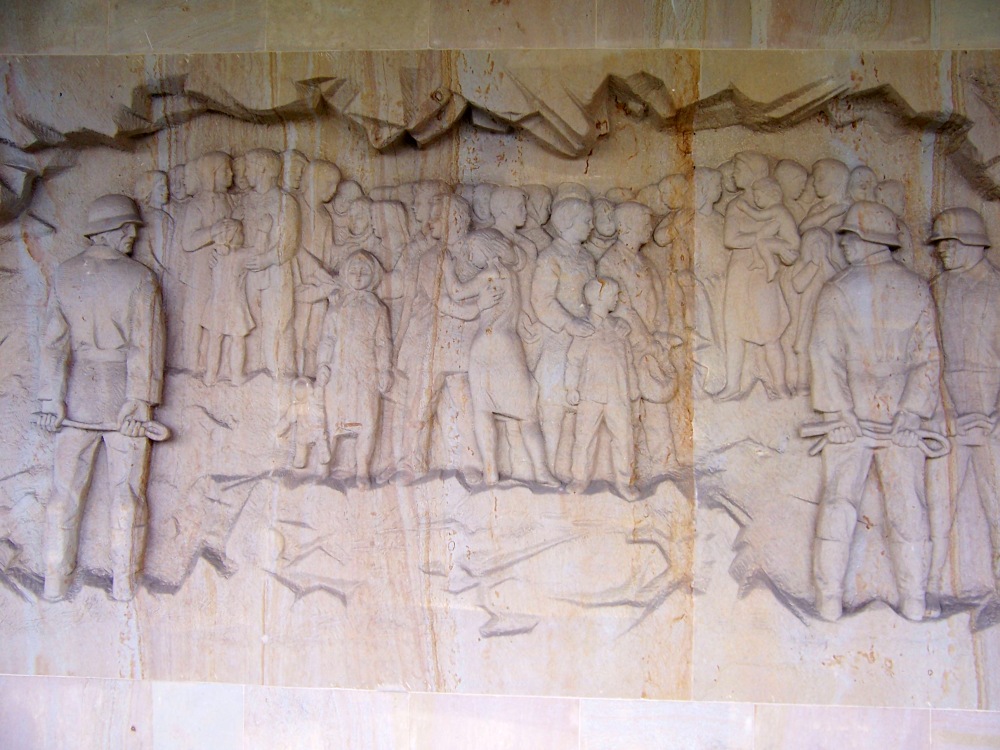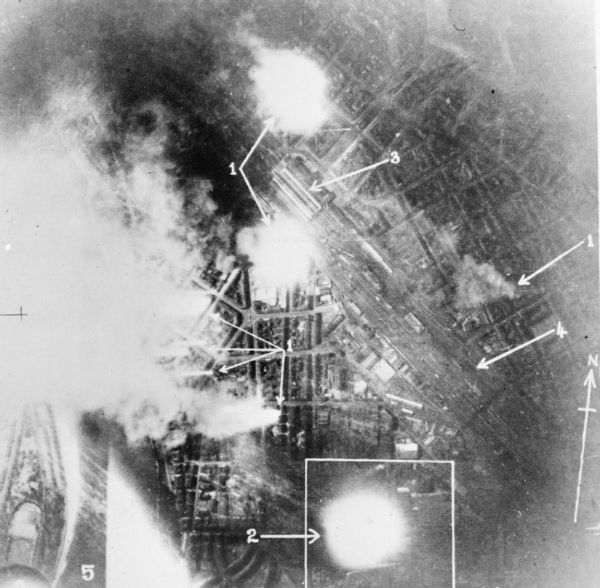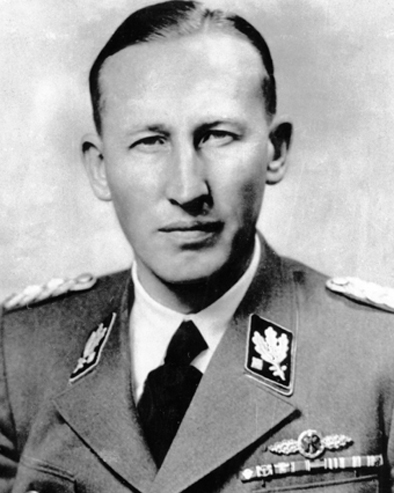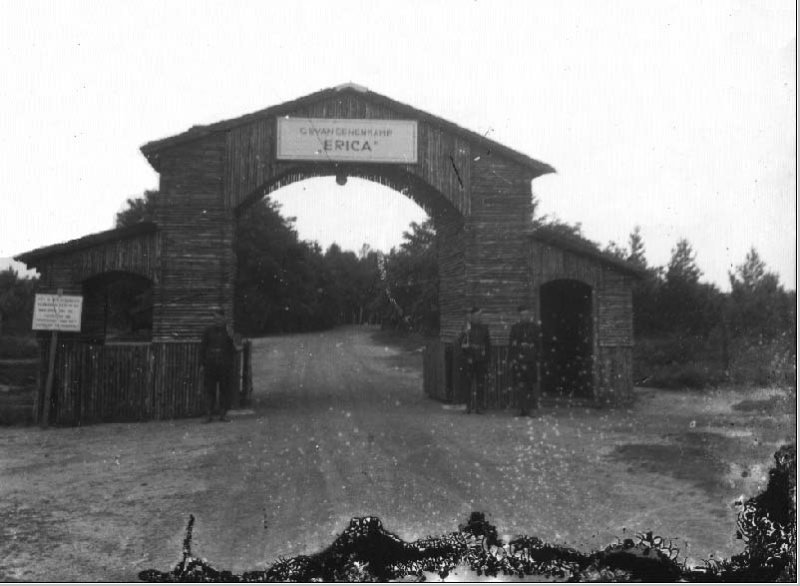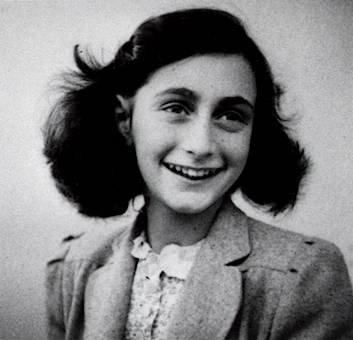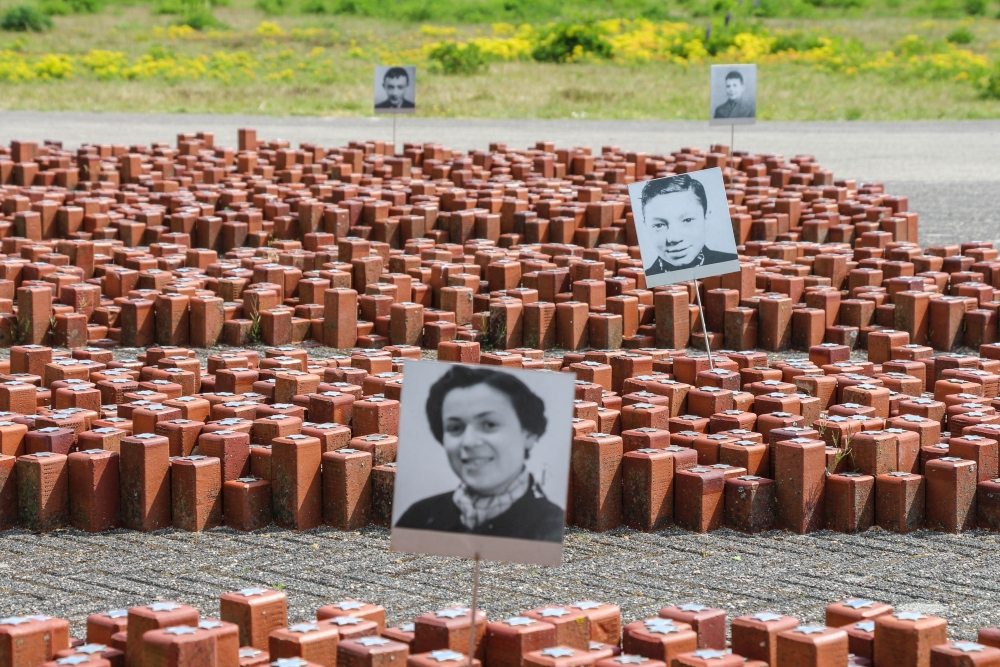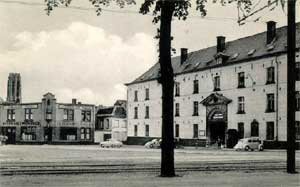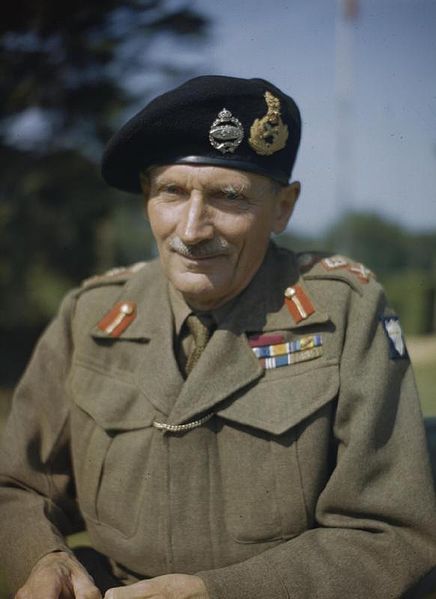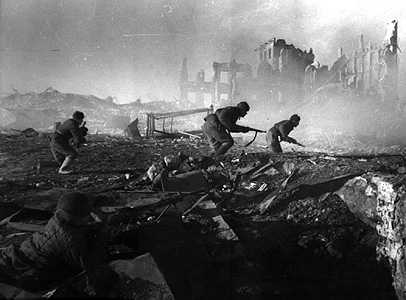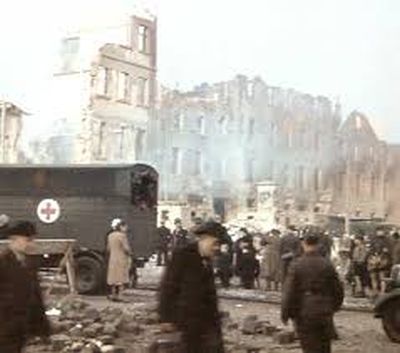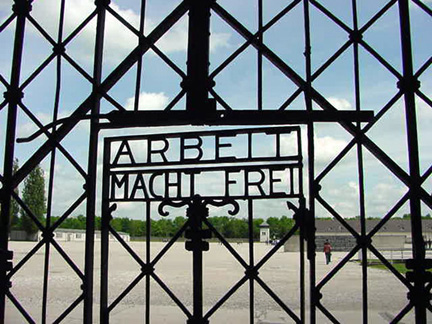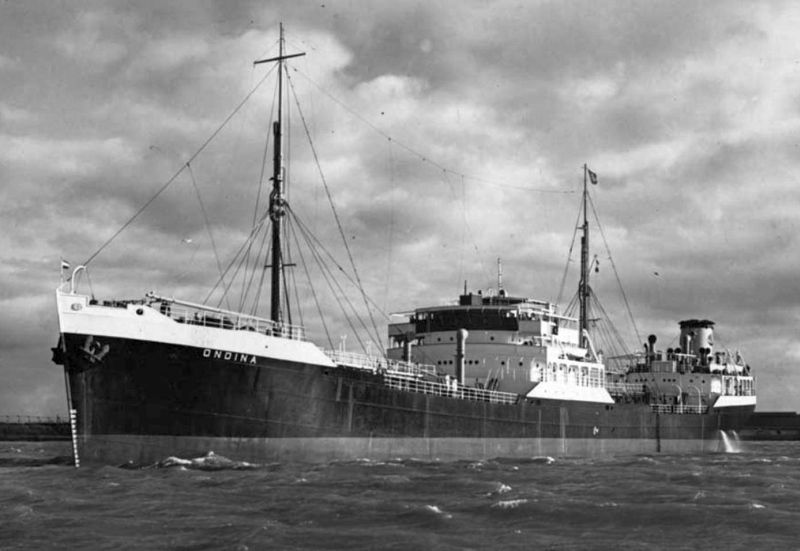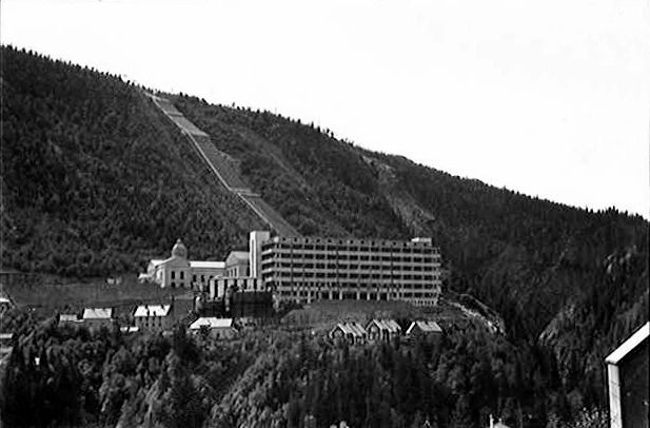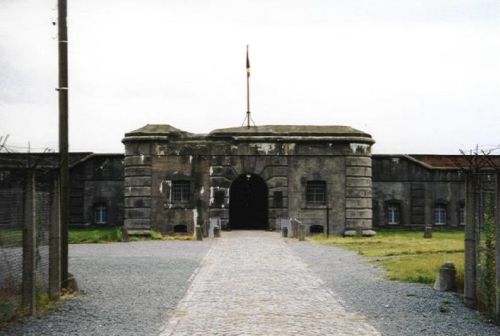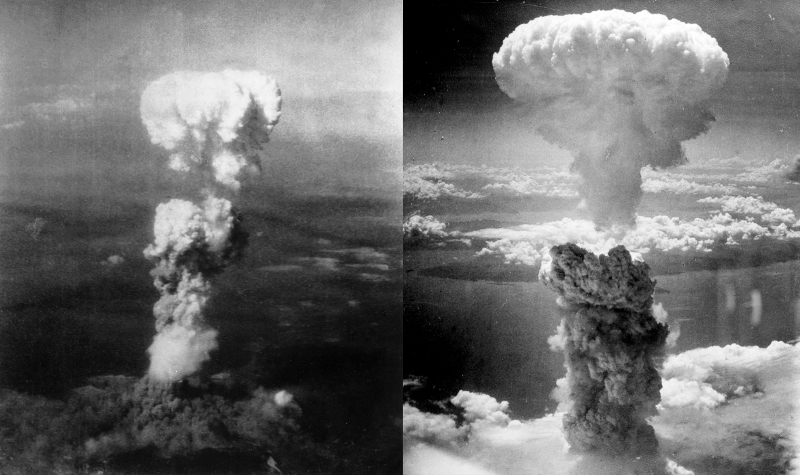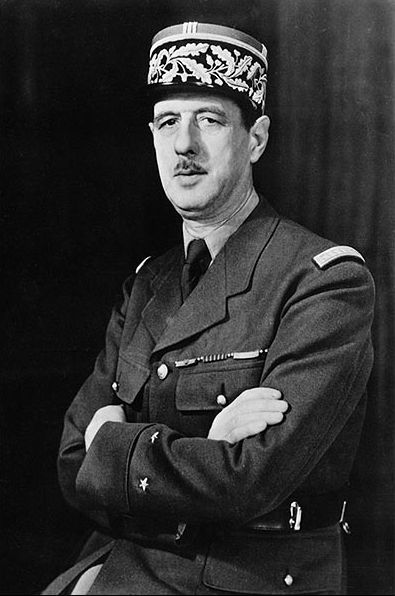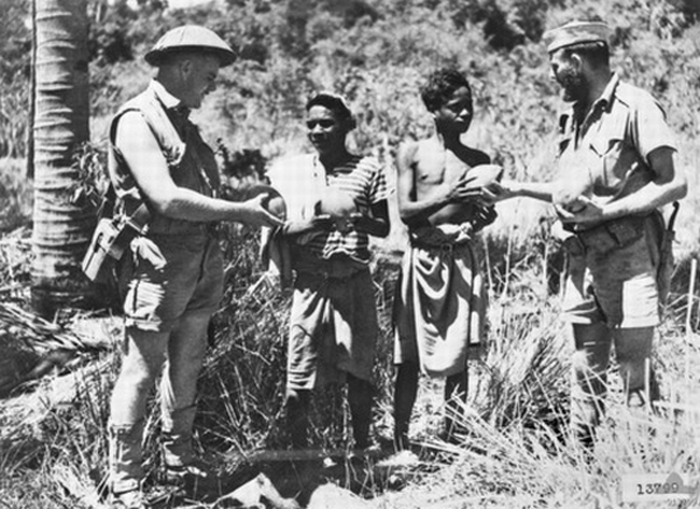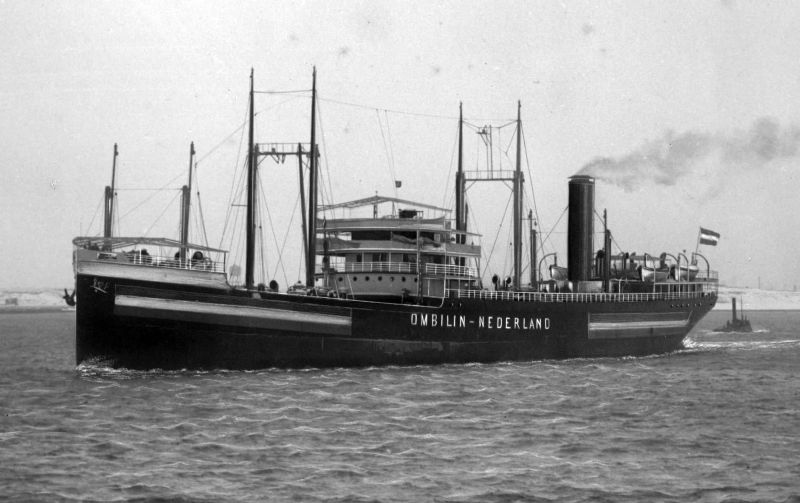-
01-01-1942: The 2ième Bureau de la France Libre (Bureau of the Free French) in London is renamed Bureau Central de Renseignement et d’Action (Central agency for intelligence and action).
-
01-01-1942: In Washington, the United Nations Declaration is signed by representatives of 26 nations including the Netherlands.
-
02-01-1942: Manilla and the American naval base at Cavite fall in Japanese hands.
-
03-01-1942: The SOE agent Huub Lauwers, who was dropped in November 1941, has radio contact with England for the first time from The Hague.
-
03-01-1942: The first edition of the Verordeningenblad for the occupied Dutch territory of the year 1942 is published.
-
07-01-1942: Japan attacks Bataan in the Philippines.
-
08-01-1942: P.A. Kerstens is appointed Secretary of Trade, Industry and Shipping in the Gerbrandy cabinet.
-
09-01-1942: Soviet forces re-enter the Smolensk district.
-
11-01-1942: Japan invades the Dutch East Indies and Borneo
-
12-01-1942: The Netherlands: The Supreme Court issues its notorious Judgment of Comparison, indicating it is unable to compare the measures issued by the Germans against the Rules of Land Warfare. It also states that meausres proclaimed by the occupier have the same status as the Dutch laws.
-
12-01-1942: The Dutch troops on the island of Tarakan surrender to a Japanese invasion force. However, this message does not reach all units. A Dutch coastal battery fires on Japanese ships in the afternoon, sinking two vessels.
-
13-01-1942: Germany launches a U-boat offensive, Operation Drumbeat off the eastern seaboard of the United States.
-
15-01-1942: In the Netherlands, zinc coins of 25, 10, 5, 2½ en 1 cent are introduced.
-
17-01-1942 - 17-01-1942: In an attempt to escape to England, Dr. H.B. Wiardi Beckman is arrested on the beach at Scheveningen.
-
18-01-1942: The Germans recapture Feodosia.
-
18-01-1942: A military agreement between Germany, Japan and Italy is signed in Berlin.
-
18-01-1942: The Dutch KPM ship the "Van Imhoff", which transports interned German civilians from Sibolga to Bombay is sunk by a Japanese plane near Sumatra. The 48 Dutch crew members and 62 guards managed to get to safety. The interned Germans are left to their own devices. Only 65 of the 477 prisoners survive the disaster.
-
19-01-1942: The Catholic priest Titus Brandsma is arrested for his activities in the resistance.
-
19-01-1942: Japanese forces capture northern Borneo.
-
19-01-1942: In revenge for the sinking of two of their minesweepers (see 12-01-1942), the Japanese executed 215 Dutch prisoners of war on Tarakan.
-
20-01-1942: In a villa on the Wannsee near Berlin, a conference is held on the implementation of the Endlösung der Judenfrage (Final solution of the Jewish question.
-
21-01-1942: Rommel launches a counter offensive near El Agheila in Libya.
-
23-01-1942: The Soviets achieve a break through in the region between Smolensk and Lake Ilmen.
-
23-01-1942: Japan captures Rabaul on New Britain in the Solomon Islands and launches the invasion of Bougainville
-
26-01-1942: American forces arrive in Ulster. The Irish president, E. de Valera protests against this.
-
27-01-1942: U.S.S. Gudgeon (SS 211) is the first American submarine to sink a Japanse war ship, the submarine I-73.
-
28-01-1942: The Soviets advance into the Ukraine.
-
28-01-1942 - 28-01-1942: During a bombardment on the port of Rotterdam, 71 people lose their lives in Rotterdam and Schiedam as a result of misdirected bombs.
-
30-01-1942: The British begin withdrawing from Singapore. The siege of the city begins.
-
01-02-1942: First American offensive in the Pacific with air raids on Japanese bases in the Gilbert And Marshall Islands.
-
08-02-1942: Hitler appoints Albert Speer Reichsminister für Rüstung und Munitionen (armament and munitions) after Fritz Todt is killed in an accident.
-
08-02-1942: British forces hold out near El Gazala, 37 miles west of Tobruk (Libya), halting the advance of the Afrika Korps.
-
09-02-1942: Macassar in the Dutch East Indies is occupied after a Japanese landing.
-
10-02-1942: Japanese forces push British, British-Indian and Australian troops back to 9,3 miles from Singapore.
-
10-02-1942: In the Netherlands, a protest by 2,400 artisans is submitted to Seyss-Inquart.
-
11-02-1942: Adolf Hitler praises the conduct of the Wallonian Legion during the battle for Leningrad. Subsequently, Léon Degrelle calls on everybody to join the Legion.
-
11-02-1942: The United States sends about 2.300 troops from New Orleans to Curaçao and Aruba in order to defend import oil refineries.
-
12-02-1942: All Dutch involved in stage and theatre are obliged to join the Dutch Kulturkammer.
-
12-02-1942: Japanese forces capture Bandjermasin, the capital of Borneo.
-
13-02-1942: Japanese forces occupy the town of Medan in the Dutch East Indies.
-
14-02-1942: The Norwegian Evangelic-Lutheranian bishops send a letter of protest on occasion of the Nazification measures.
-
14-02-1942: Japanese paratroopers are dropped in three places in the vicinity of oil refineries around Palembang on Sumatra
-
15-02-1942: Japanese forces land on the southeastern coast of Sumatra near the mouth of the river Musi.
-
15-02-1942: Singapore surrenders to the Japanese; 60,000 British soldiers are made prisoner-of-war.
-
16-02-1942: U-boats sink three oil tankers and strafe a refinery in the Dutch Antilles.
-
16-02-1942: Japanese forces capture Palembang on Sumatra.
-
17-02-1942: Operation Cerberus gets under way: the escape of the German ships the Scharnhorst, Gneisenau and Prinz Eugen from the port of Brest in France.
-
18-02-1942: Japanese bombers attack Surabaya and Japanese forces land on Bali and occupy Denpasar in the Dutch East Indies.
-
18-02-1942: The Dutch submarine Hr. Ms. K VII is sunk by Japanese planes in the port of Surabaya. All thirteen crew members are killed.
-
19-02-1942: Japanese forces land on Timor and Bali.
-
19-02-1942: Most Dutch actors join the Kulturkammer, except the groups of Albert van Dalsum, Ko Arnoldi and Pierre Balledux. These groups are subsequently disbanded.
-
19-02-1942: Some 150 Japanese aircraft attack Darwin, Australia.
-
19-02-1942: U.S. President Roosevelt signs an executive order whereby thousands of American-born Japanese are interned.
-
20-02-1942: The German government decides to transport 627,000 Russian workers to Germany.
-
20-02-1942: Japanese forces reach Strait Sunda on Sumatra across from the most westerly point of Java.
-
22-02-1942: U.S. President Roosevelt orders General MacArthur to abandon the Philippines.
-
23-02-1942: In the Netherlands, employment in Germany (Arbeitseinsatz) is declared mandatory.
-
23-02-1942: New Soviet offensive on the central front.
-
24-02-1942: U.S.S. Enterprise attacks Japanese troops on the island of Wake.
-
27-02-1942: Japanese bombers attack Port Blair, the capital of the Andamanen.
-
27-02-1942: The carrier U.S.S. Langley is sunk by Japanese aircraft.
-
27-02-1942 - 27-02-1942: In the battle of the Sea of Java, the Allies suffer a severe defeat. Commander Karel Doorman loses his life aboard his flagship, the cruiser H.M. De Ruyter. The Dutch cruiser H.M. Java, the destroyer H.M. Kortenaer and the British destroyers H.M.S. Eelectra and H.M.S. Jupiter are also lost.
-
28-02-1942: The first weapons drop for the Dutch resistance occurs.
-
28-02-1942: A British command group raid a German radar station near Bruneval.
-
01-03-1942: During the battle of the Sunda Strait U.S.S. Houston and H.M.A.S. Perth are sunk by the Japanese north of Bantam Bay in the Sea of Java. During this engagement H.M. Evertsen is also lost.
-
01-03-1942: Some 60,000 Japanese troops land in various places on Java and move inland.
-
01-03-1942: After German troops have entered Trondheim cathedral and forced all children between the ages 10 and 18 to join the National Socialist Youth Movement, all seven bishops of the State church resign in protest.
-
01-03-1942: Soviet offensive in the Crimea.
-
01-03-1942: Japanese troops enter Java in the Dutch East Indies.
-
01-03-1942: During the second battle in the Sea of Java, also known as the battle off Bawaen island, H.M.S. Exeter, H.M.S. Encounter and U.S.S. Pope are sunk.
-
02-03-1942: American, British and Dutch troops launch a counter strike on three Japanese columns in order to prevent them from moving further inland.
-
02-03-1942: Berlin acknowledges that Soviet attacks in the Donetz basin, in the Crimea and in the region around Kursk are getting fiercer.
-
02-03-1942: The Dutch auxiliary minesweeper Hr. Ms. Emden is intercepted by Japanese destroyers and sunk while attempting to get out of Java from the quarters to Australia. The seventeen survivors spend five days at sea before reaching the island of Puloe Sebaroe.
-
03-03-1942: Dutch troops demolish their own naval installations in Surabaya in the Dutch East Indies.
-
03-03-1942: Japanese air raid on Broome in Australia by nine Zero's, fifteen flying boats carrying refugees from the Dutch East Indies are sunk and seven aircraft at the airport are destroyed. There are 100 deaths, including 48 Dutch. A Zero is taken down.
-
04-03-1942: American troops arrive in Northern Ireland.
-
04-03-1942: Dutch troops in the Dutch East Indies demolish the harbor installations in Tandjong Priok and the Governor-general hands over command.
-
04-03-1942: U.S.S. Enterprise attacks Marcus island.
-
05-03-1942: Japanese forces move into the city of Batavia (now Djakarta) in the Dutch East Indies.
-
06-03-1942: Japanese forces advance into Rangoon in Birma.
-
06-03-1942: In the Netherlands, agents of the SD commanded by Schreieder, arrest the agent H. Lauwers as part of the Englandspiel.
-
06-03-1942: The Dutch troops in the Dutch East Indies surrender Jogjakarta, isolating the naval base at Surabaya on Eastern Java.
-
06-03-1942: Introduction of mandatory employment in Belgium and northern France.
-
06-03-1942: The Dutch submarine Hr. Ms. K XII is the last Dutch warship to flee Java and to Australia.
-
06-03-1942 - 06-03-1942: The Dutch minesweeper Hr. Ms. Abraham Crijnssen successfully diverts from the port of Surabaya to Geralton, Western Australia.
-
07-03-1942: Japanese forces occupy Lembang on Java.
-
07-03-1942: The British evacuate Rangoon in Birma while the Japanese invade Salaaua and Lae in Dutch New Guinea.
-
08-03-1942: Feldmarschall Gerd von Rundstedt succeeds Feldmarschall Erwin von Witzleben as Oberbefehlshaber West (OBWest, supreme commander).
-
08-03-1942: After the Japanese have threatened to bomb the city of Bandung in the Dutch East Indies, the decision is made by the Dutch armed forces to surrender.
-
09-03-1942: The K.N.I.L. (Royal Dutch Indonesian Army) surrenders to the Japanese; 93,000 are made prisoenr-of-war. The battle on Sumatra, Timor and central Celebes still continues.
-
09-03-1942: SOE agent Taconis, who was dropped on November 7, 1941, is arrested.
-
11-03-1942: The Dutch government introduces the Vaarplichtbesluit which requires all seamen under 60 years of age who entered maritine service on May 15, 1940 or later, to remain in service aboard a ship flying the Dutch flag until 6 months at most after the end of the war.
-
11-03-1942: In the Dutch East Indies, Japanese general Hitosji Imamoera, commander of 16th Army, takes over the authorities of the Governor-general.
-
11-03-1942: General Mac Arthur leaves Corrigidor for Australia. General Jonathan Wainwright is his successor.
-
12-03-1942: Japanese troops land on the islands of Sabang and eastern Sumatra.
-
13-03-1942: Germany orders the deportation of 110,000 Romanian Jews.
-
14-03-1942: The New Zealand government raises compulsory conscription from 46 to 50 years and mobilizes women for military service. A 54 hour work week is introduced in the armaments industry as well.
-
14-03-1942: Soviet forces launch an attack on Staraja Russa, the encircled German army base on the northern front.
-
15-03-1942: According to Radio Tokyo, more than 50,000 American, British and Australian troops have been made prisoner-of-war on western Java.
-
15-03-1942: On occasion of Heldengedenktag (day of commemoration of the heroes), Adolf Hilter delivers a speech announcing the annihilation of the Red Army.
-
16-03-1942: The head of the Ostministerium, Alfred Rosenberg protests against the actions by Erich Koch who has prisoners liquidated in large numbers in the Ukraine without any form of trial.
-
16-03-1942: Large Soviet offensive commanded by Timoshenko against the German lines from Orjol via Kursk to Charkov.
-
17-03-1942: All Europeans in Padang on Sumatra are confined to their homes.
-
17-03-1942: General Douglas MacArthur is appointed Commander-in-Chief Allied Forces in the Pacific.
-
17-03-1942 - 17-03-1942: As part of Aktion Reinhard, 30,000 Jews from the Lublin ghetto are deported to Belzec, where they are gassed.
-
18-03-1942: Germany closes all Norwegian ports and laus mines from the North Cape to Alesund.
-
19-03-1942: The value of the Belgian franc is untied from the gold and tied to the German Reichsmark.
-
19-03-1942: Lauwers sends his first message under German direction, the start of the "Engelandspiel."
-
20-03-1942: General Wainwright succeeds Generaal Douglas McArthur as commander of the Philippines.
-
21-03-1942: Hitler names Fritz Sauckel, captain in the SA and SS Generell Bevollmächtigte für den Arbeitseinsatz (Plenipotentiary for the Allocation of Labor).
-
23-03-1942: Japanese troops occupy the Andamanen in the Gulf of Bengal.
-
23-03-1942: The general construction plan for Majdanek concentration camp is approved. The plans for Majdanek changed numerous times, resulting in over a dozen different versions.
-
24-03-1942: Japan bombs and strafes the Bataan peninsula west of the Philippine capital of Manila.
-
24-03-1942: German bombers unleash the heaviest air raid since 1941 on the British cities of Dover, Portland and Newhaven.
-
24-03-1942: Start of the deportation of Slovak Jews to Auschwitz.
-
24-03-1942: Admiral Chester Nimitz is appointed ComPac (Commander-in-Chief of the U.S. Pacific Theatre.
-
25-03-1942: Japanese troops cut the road between Rangoon and Mandalay in Birma.
-
27-03-1942: The German laws, which prohibit marriages and sexual relations between Jews and non-Jews are also applied to the Netherlands.
-
27-03-1942: Start of the deportation of French Jews to Auschwitz.
-
28-03-1942: The Dutch military commanders in central and northern Sumatra capitulate.
-
28-03-1942: After his dropping at Kallenkote, SOE agent Nol Baatsen is immediately arrested. The Germans are aware of his arrival through the Engelandspiel.
-
28-03-1942 - 28-03-1942: RAF bombing of Lübeck by 234 bombers. The city center is badly damaged and 301 people are killed.
-
29-03-1942: In the region around Kalinin, Soviet forces score a victory over German troops.
-
29-03-1942: Parachuting of four SOE agents, including the radio operator Han Jordaan. He is arrested in early May.
-
29-03-1942: Raid op de haven van Saint-Nazaire. Er worden vernielingen aangericht in het havengebied en het Normandië-droogdok wordt verwoest. Van de 611 deelnemende militairen worden er 169 gedood en worden er 215 gevangen genomen.
-
30-03-1942: The first trains containing French Jews arrive in Auschwitz.
-
31-03-1942: Japanese forces capture Toungoo in Birma and cross the river Irrawaddy.
-
01-04-1942: British troops surrender Prome in Birma to the Japanese.
-
01-04-1942: Japanese forces from the Dutch East Indies launch landings over a period of three weeks from Sorong to Hollandia on Dutch New Guinea.
-
01-04-1942: In the Netherlands, membership of the Kulturkammer is made mandatory for artisans.
-
03-04-1942: American bombers launch attacks on Rangoon in Birma and Port Blair in the Andamanen.
-
05-04-1942: A total of 75 Japanese bombers attack Colombo, the capital of Ceylon.
-
05-04-1942: Almost the entire clergy of the Norwegian State church resigns in protest.
-
06-04-1942: The Japanese air force bombs the British-Indian cities of Madras, Coconada and Vizagapatam for the first time.
-
06-04-1942: The first American troops arrive in Australia.
-
07-04-1942: The Council of Dutch Churches writes a joint letter to Seyss-Inquart complaining about the conduct of the SD.
-
07-04-1942: In the Netherlands the Hauptabteilung Soziale Verwaltung (Department of Social Administration) previously subordinate to the Generalkommisssar für Finanz und Wirtschaft (General commissioner for finance and science) is made subordinate to the Generalkommissar zur besonderen Verwendung (General commissioner without portfolio) Fritz Schmidt.
-
08-04-1942: Some German formations in Libya start their advance in the region of Tmini-Mekili.
-
09-04-1942: American and Philippine forces on Bataan surrender to the Japanese; some 70,000 men are made prisoner-of-war.
-
09-04-1942: Negotiations between Sauckel and Seyss-Inquart about the recruitment of Dutch laborers for the German industry. Sauckel demands 30,000 Dutch metal workers before May 15. Holland Aktion 1.
-
10-04-1942: Beginning of the Bataan death march; over 5,000 American prisoners-of-war perish.
-
11-04-1942: The Bulgarian cabinet steps down because it refuses to accept Hitler’s program of war.
-
11-04-1942: Former Dutch Prime Minister De Geer, an advocate of a compromise with the Germans, publishes his brochure "The syntheses of war."
-
13-04-1942: Lord Louis Mountbatten is appointed Chief of Combined Operations, effective from March 18.
-
13-04-1942: Henk Sneevliet, leader of the R.S.A.P. is executed for his illegal activities, along with six others.
-
16-04-1942: Under German pressure, Maréchal Pétain takes Pierre Lavel back in the Vichy-French government. François Darlan is named Commander-in-Chief of the Vichy armed forces.
-
17-04-1942: British troops in Birma destroy the Yenangyaung oil fields and pull back under Japanese pressure.
-
18-04-1942: Cuban President Fulgenico Batista signs a decree expelling all inhabitants of Axis nations from the country.
-
18-04-1942: Commanded by Brigade-general James H. Doolittle, a group of B-25 Mitchell bombers, taking off from the carrier U.S.S. Hornet, launch an air raid on the Japanese cities of Tokyo, Yokohama, Kobe and Nagoya; also known as the Doolittle raid.
-
18-04-1942: Pierre Laval becomes head of the Vichy-French government.
-
19-04-1942: Chinese troops come to the aid of British forces at the front on the Irrawaddy.
-
19-04-1942: In Dutch Roman Catholic and Protetant churches a proclamation is read, voicing grave concerns about what’s going on and the policy of the German occupier.
-
19-04-1942: A U-boat strafes the Shell refinery at Bullenbaai on Curaçao.
-
20-04-1942: A combined Chinese-British task force recaptures the oil town of Yenangyaung in Birma and liberates a few thouseand British in the process.
-
20-04-1942: German Jews are no longer allowed to use public transport.
-
22-04-1942: On eastern and central Java, most of the public servants are arrested.
-
23-04-1942: In Norway 1,100 teachers are deported to labor camps for refusing to enroll in the teachers union, established by Quisling.
-
23-04-1942: German air raids on major British cities.
-
25-04-1942: French army commander Henri Honoré Giraud, who was arrested in May 1940, manages to escape from a German fortress near Königstein.
-
27-04-1942: Ghandi rejects the possible arrival of American military in British India because of the American influence on the population.
-
27-04-1942: 65% of the Canadian population votes in a referendum in favor of sending military personnel overseas.
-
28-04-1942: The R.A.F. launches a heavy bombardment on the Norwegian naval base at Trondheim.
-
29-04-1942: The Burmese city of Mandalay is evacuated by the British.
-
29-04-1942: From May 2, 1942 onwards, Jews in the Netherlands are obliged to wear the yellow star of David.
-
30-04-1942: In Birma Japanse troops capture the end point of the Birma road, Lashio as well as the railway junction at Hsipaw.
-
30-04-1942: Hitler and Mussolini conclude a two-day conference near Salzburg.
-
01-05-1942: The Nederlandse Arbeidsfront (Dutch Workers front) is established. It is ruled entirely by the N.S.B. and is intended to unite all those who sustain themselves by labor. The leader is N.S.B. man H.J. Woudenberg.
-
01-05-1942: The beach between Den Helder and Hoek van Holland is closed to civilians, leading to the first evacuation of the local inhabitants.
-
01-05-1942: The first underground newspapers are delivered in London.
-
01-05-1942: The Burmese city of Mandalay is occupied by the Japanese.
-
01-05-1942: The Mouvement de la Jeunesse Sioniste (Zionist Youth Movement) is established in Montpellier, France.
-
01-05-1942: In Italy, Jews are arrested for the first time. They are interned in camps in Salerno, Cosenza and Chioti.
-
02-05-1942: The Royal Navy has sunk its own cruiser H.M.S. Edinburgh carrying a considerable amount of Russian gold. She had been severely damaged by a German torpedo on April 30 and on her return voyage to Murmansk today she was struck again by a torpedo from a German destroyer.
-
03-05-1942: Japanese troops occupy the island of Tulagi in the Solomons archipelago.
-
04-05-1942: In connection with a hostage action, hundreds of Dutch are arrested and transferred to Haren, North-Brabant.
-
04-05-1942: Bombers from the American carrier U.S.S. Yorktown attack Tulagi harbor. This is the first phase of the actions in the Coral Sea.
-
04-05-1942: The Germans execute 72 members of the Dutch resistance.
-
04-05-1942: Japanese troops capture Akyab, the last Burmese harbor still in British hands.
-
04-05-1942: The first selection in camp Birkenau is carried out.
-
04-05-1942: Bombing of Exeter by the Luftwaffe, one of the so-called "Baedeker Raids." 161 people were killed and 12 hectares of the city were destroyed.
-
05-05-1942: Operation Ironclad: British troops land on the island of Madagascar.
-
05-05-1942: The American carriers U.S.S. Yorktown and U.S.S. Lexington join forces in search of the Japanese invasion fleet for Port Moresby in Australian New Guinea.
-
06-05-1942: Reinhard Heydrich places SS-Oberruppenführer Karl Oberg in command of the police forces in France.
-
07-05-1942: The last point of support of the Americans in the Philippines, the island fortress of Corregidor, falls in Japanese hands. After consultation with President Roosevelt and General MacArthur, the commander, Lieutenant-general Jonathan Wainwright decides to surrender to the Japanese.
-
08-05-1942: The battle of the Coral Sea. The Americans lose the carrier U.S.S. Lexington and the carrier U.S.S. Yorktown is severely damaged. On Japanese side, the carrier Shoho is sunk, the carrier Shokaku is severely damaged and the carrier Zuikaku looses many aircraft. The Japanese invasion fleet for Port Moresby has to turn back. The Americans had deciphered the Japanese code and knew all the plans of the Japanese. This is the first American victory in the Pacific.
-
08-05-1942: The Germans launch their summer offensive in the Crimea.
-
09-05-1942: General Timoshenko launches an offensive out of the Donetz basin towards Charkov.
-
10-05-1942: Churchill warns Germany that Great Britain will strike hard if she uses poison gas in the Soviet Union.
-
12-05-1942: In Birkenau, the first entire transport consisting of 1,200 men, women and children from the ghetto of Sosnowitz is exterminated.
-
12-05-1942: In the Philippines, the last American troops surrender.
-
13-05-1942: The Soviets launch heavy attacks in the region around Charkov. They withdraw from the Kerch peninsula.
-
14-05-1942: In Germany, a decree is issued pertaining to the mandatory employment of Polish workers.
-
15-05-1942: British reconnaissance over Peenemünde show inexplicable installations for the first time.
-
15-05-1942: Some 2,000 Dutch career officers are transferred back into German prisoner-of-war camps.
-
15-05-1942: British forces retreating from Birma reach India.
-
15-05-1942: Imperial headquarters in Tokyo orders the Combined Fleet to support the army in the invasion of Midway and the Aleuthians.
-
15-05-1942: Costa Rica declares war on Hungary and Romania.
-
16-05-1942: The first transport of Dutch and British prisoners-of-war from Belawan Deli to southern Birma.
-
17-05-1942: The members of the Dutch SS pledge an oath of alliance to the Führer.
-
17-05-1942: In the Netherlands, sweets and chocolate are put on ration.
-
17-05-1942: Extermination camp Sobibor is established.
-
20-05-1942: All of Birma is in Japanese hands.
-
20-05-1942: As they know the invasion plans of the Japanese, the Americans quickly dispatch re-inforcements to Midway and the Aleuthians.
-
20-05-1942: The entire Kerch peninsula is recaptured by the Germans.
-
21-05-1942: The PSH (Partai Sarikat Islam Indonesia) and the PH (Partai Islam Indonesia) are prohibited.
-
22-05-1942 - 22-05-1942: The first large meeting of members of the Kreisauer Kreis at Schloss Kreisau, the real estate owned by the most important figure of this group, Helmuth James Graf von Moltke.
-
26-05-1942: General Rommel launches the third German counter attack on the front at El Gazala.
-
26-05-1942: Great Britain and the Soviet Union sign an agreement lasting 20 years.
-
26-05-1942: Rommel launches an offensive against the Gazala Line in Libya.
-
27-05-1942: Czech resistance fighters, trained by British agaents, make a murder attempt on SS-Obergruppenfüher Reinhard Heydrich, deputy Reichsprotektor of Bohemia and Moravia, better known as the Butcher of Prague. Heydrich succumbs to his injuries eight days later (see 1942-06-04). Right after the attempt, over 1,500 death sentences are pronounced and carried out immediately.
-
27-05-1942: Belgian Jews are obliged to wear the yellow star of David.
-
28-05-1942: Mexico declares war on Germany, Italy and Japan (effective from May 22).
-
28-05-1942 - 28-05-1942: RAF bombing of Cologne. The first of the so-called "Thousand-Bomber Raids." 486 people are killed, 3,300 buildings are destroyed, 41 bombers are shot down.
-
29-05-1942: Jews in Vichy-France are obliged to wear the yellow star of David.
-
30-05-1942: In Alsace-Lorraine in France, compulsory labor is introduced.
-
01-06-1942: Early June, the first test launches of the V2 rocket are carried out.
-
01-06-1942: In Paris, Sauckel demands 150,000 French workers from Laval for the German industry in exchange for the release of 50,000 French prisoners-of-war.
-
03-06-1942: On Java, rice is put on ration.
-
04-06-1942: SS-Obergruppenführer Reinhard Heydrich dies in a hospital in Prague from blood poisoning sustained during the attempt of May 27.
-
04-06-1942: Australian Prime Minister Curtin is appointed representative in the War Cabinet of the United Kingdom.
-
04-06-1942 - 04-06-1942: A British counter attack on Rommel’s advancing troops fails.
-
04-06-1942 - 04-06-1942: Battle of Midway: one of the decisive battles in the Pacific theatre. Japan loses the carriers Akagi, Kaga, Soryu and Hiryu and the cruiser Mikuma. The U.S. loses the carrier U.S.S. Yorktown. The Japanese navy has never recovered from this defeat.
-
05-06-1942: The United States declares war on Bulgaria, Romania and Hungary.
-
06-06-1942: In the Netherlands, transport of vegetables for private persons is prohibited.
-
07-06-1942: Japanese troops land on Attu and Kiska in the Aleuthians.
-
07-06-1942: After being badly damaged by bombing during the Battle of Midway and a torpedo attack by a Japanese submarine, the American aircraft carrier USS Yorktown sinks.
-
08-06-1942: General MacArthur suggests to General Marshall to launch a limited offensive in the Bismarck archipelago
-
09-06-1942: In Berlin, SS-Obergruppenführer Reinhard Heydrich is buried in a solemn ceremony. State Secretary K.H. Frank orders the elimination of the inhabitants and the destruction of the Czech village of Lidice.
-
09-06-1942: The Soviet government guarantees the former borders of Czechoslovakia.
-
10-06-1942: All inhabitants of the Czech village of Lidice are murdered in reprisal of the attempt on Heydrich.
-
11-06-1942: The Allies launch air strikes on the island of Kiska, Attu is outside their range.
-
12-06-1942: American bombers attack the Romanian oil fields at Ploiesti for the first time.
-
14-06-1942: Beginning of the general imprisonment of European males on Java.
-
15-06-1942: On Java, all political parties and unions are forbidden. The entire Javanese press is all but equalized.
-
18-06-1942: The Germans surrounded the Church of Saint Cyril and Saint Methodius, where seven members of the Czech resistance, including the perpetrators of the attack on Heydrich, are hiding. After a shootout with the SS, the seven commit suicide.
-
18-06-1942 - 18-06-1942: Queen Wilhelmina visits Canada and the United States.
-
19-06-1942: The first prisoners arrive in Justizlager Erika.
-
21-06-1942: Rommel’s troops capture Tobruk.
-
22-06-1942: Vichy-France and Germany sign an agreement on the release of French prisoners-of-war and the employment of French workers in Germany.
-
22-06-1942: A Japanese submarine strafes Fort Stevens on the mouth of the Columbia river in Oregon. It is the first and also the last strafing of a military target in the United States by the enemy during World War Two.
-
24-06-1942: The German troops have advanced 50 miles into Egypt meanwhile and close in on Sidi Barrani.
-
24-06-1942: On this day, the Czech village of Ležáky is razed to the ground following the escape of the Czech captain Bartoš. In an ambush in Pardubice, Bartoš was injured and died shortly after, the Germans got their hands on his briefcase. In the mill in Ležáky, a transmitter had been hidden. At the time of the raid, this transmitter had been relocated to a stone quarry near Dachov, close to Ležáky, the operator was Potùèek.
-
25-06-1942: General Auchinleck takes personal command of the British 8th Army over from General Ritchie and decides to withdraw from Mersa Matru to El Alamein.
-
26-06-1942 - 26-06-1942: Dropping and direct arrest of the wireless operator Chef Bukkens and the SOE agent and intended leader of the Plan for Holland George Jambroes.
-
27-06-1942: The convoy PQ-17, consisting of 35 ships and loaded with American war material destined for the Soviet Union, departs from the Hvalfjord (Iceland) for the Russian ports of Murmansk and Arkhangelsk.
-
28-06-1942: The Germans launch an offensive in the sector Kursk – Woronjez.
-
29-06-1942: The Germans and Italians win the battle of Mersa Matruh.
-
30-06-1942: In Birkenau Bunker II is brought into service due to the increasing number of Jews.
-
01-07-1942: The Japanese passenger liner Montevideo Maru, mainly carrying 1,053 Australian prisoners-of-war and civilian internees is sunk by U.S.S. Sturgeon off the Philippines. All prisoners and an unknown number of crew members lose their lives.
-
01-07-1942: In July, the deportation of Serbian Jewish women and children from camp Zemlin to the east is completed.
-
01-07-1942: In July, the "Swiss road" is opened, an escape route for the underground through Switzerland.
-
01-07-1942: In the summer of 1942, Joachim Simon (Schuschu) and Joop Westerweel start their resistance activities. A secret escape route is set up.
-
01-07-1942: Greece and Vichy-France sever their diplomatic ties.
-
02-07-1942: The Combined Chiefs of Staff issue a directive for the recapture of New Britain, New Ireland and New Guinea.
-
02-07-1942: The tank corps of Feldmarschall Rommel is halted at El Alamein.
-
02-07-1942: Berlin Jews are deported to Theresienstadt.
-
03-07-1942: After heavy fighting, Sevastopol is captured by the Germans.
-
04-07-1942: Fearing the German battleship Tirpitz, the First Sea Lord Admiral Sir Dudley Pound orders that the merchant ships of the Allied convoy PQ-17 disperse and that the escorts should withdraw westward. Of the 35 defenseless merchant ships, 24 are subsequently sunk by German U-boats and aircraft.
-
05-07-1942: The Dutch steamship SS Paulus Potter, which was part of the PQ-17 convoy, is bombed and machine-gunned in the Barents Sea by German aircraft. The crew leaves the ship.
-
06-07-1942: Anne Frank and her family go into hiding in a back room of her father's company.
-
06-07-1942: Intelligence agent Aart Alblas is arrested by the Germans.
-
07-07-1942: Himmler permits experiments with sterilization in Auschwitz.
-
10-07-1942: The Dutch government in London enters diplomatic relations with the Soviet Union.
-
10-07-1942: Inönö, President of Turkey, approves the reorganization of the Turkish cabinet. The new Prime Minister, M. Saracoglu becomes Secretary of Foreign Affairs as well.
-
11-07-1942: The Dutch Council of Churches sends a protest telegram to Seyss-Inquart about the intended deportation of Dutch Jews.
-
13-07-1942: Indonesia, the MIAI (Madjelis Islam A'la Indonesia), a union of religious islamic societies is re-established. It has strong anti-western leanings.
-
13-07-1942: In the Netherlands, a second hostage action gets under way.
-
13-07-1942: The German submarine U-255 sinks the still floating Paulus Potter with a torpedo (see also 5 July).
-
14-07-1942: In the Netherlands the rations for butter, fat and cheese are lowered.
-
14-07-1942: The executive committee of the Indian Congressparty publishes a resolution pertaining to the withdrawal of British rule in India and threatens with large scale non-violent actions.
-
15-07-1942: The first Dutch Jews are deported from Westerbork to Auschwitz.
-
19-07-1942: In the Netherlands, especially in Rotterdam and The Hague, bicycles are requisitioned for the first time.
-
19-07-1942: General Stillwell submits a plan to Chang Kai-check, calling on the general for cooperation in the recapture of Birma.
-
20-07-1942: The Dutch episcopacy issues a pastoral letter about the deportation of Jews.
-
21-07-1942: Japanese troops land at Gona in Australian New Guinea. They intend to advance on Port Moresby from this region.
-
22-07-1942 - 22-07-1942: 300,000 Jews from Warsaw are deported to Belzec and Treblinka. The first Belgian Jews are deported to Auschwitz.
-
23-07-1942: The extermination camp in Treblinka is put into service.
-
23-07-1942: Laval succeeds in reaching a compromise pertaining to the German demands as to the Jews. Laval approves the deportation of foreign and stateless Jews.
-
24-07-1942: British and Americans decide to open a second front in North-Africa (Operation Torch).
-
26-07-1942: Titus Brandsma dies in concentration camp Dachau.
-
28-07-1942: The Z.O.B., a Polish Zionist resistance organization comes into being.
-
28-07-1942: Stalin issues his infamous Order No. 227, also known as the "No Step Back" Order.
-
31-07-1942: German troops have crossed the river Don over a length of 124 miles.
-
01-08-1942: Admiral Dönitz shifts the theatre of operations of the U-boats from the north-American waters to the convoy lanes in the northern and central part of the Atlantic Ocean. Netherlands and Belgium
-
01-08-1942: Part of the coastal population of Walcheren is evacuated in connection with the construction of the Atlantikwall.
-
01-08-1942: Sauckel demands 40,000 Dutch workers for employment in Germany over the months August and September. This is Holland Aktion II.
-
03-08-1942: In Waubach in Limburg, Generalkommissar Schmidt delivers an anti-Jewish speech.
-
05-08-1942: The first transport of Jews arrives in Birkenau from Belgium.
-
05-08-1942: German forces cross the river Kuban.
-
06-08-1942: General Harold Alexander is appointed Commander-in-Chief Middle East, replacing General Auchinleck. Lieutenant-general William Gott is appointed commander of 8th army, replacing Lieutenant-general Ritchie.
-
06-08-1942: Queen Wilhelmina delivers a speech to the American Congress.
-
07-08-1942: Lieutenant-general Gott, freshly named commander of 8th Army in North-Africa is killed when his aircraft is shot down.
-
07-08-1942: American units go ashore on the islands of Guadalcanal, Florida (Tulagi), Gavutu and Tanambogo in the Solomon islands.
-
08-08-1942: American soldiers capture the unfinished air field of Guadalcanal and rename it Henderson Field after a hero of Midway, Major Lofton Henderson.
-
08-08-1942: Three merchant ships (the Melbourne Star, Port Chalmers and Rochester Castle) enter the port of Valletta. They are the survivors of the Pedestal convoy. The next day, the damaged Brisbane Star also reached Grand Harbour.
-
08-08-1942: The heavily damaged tanker Ohio is towed into the port of Valletta by a number of naval vessels. The oil on board is a welcome addition to beleaguered Malta, which will allow it to hold out until relieved. Of the original fifteen merchant ships that set sail as part of Operation Pedestal, ten were sunk by German-Italian air and naval attacks.
-
09-08-1942: German troops arrive in the Soviet oil region Maikop. Krasnodar is occupied.
-
09-08-1942: In the battle of Savo island, the Japanese sink the Australian cruiser H.M.A.S. Canberra and the American cruisers U.S.S. Astoria, U.S.S. Quincy and U.S.S. Vincennes.
-
09-08-1942: Ghandi is arrested.
-
09-08-1942: The guerilla teams of lieutenants J.A. de Jong and W. van Daalen on Northern Vcelebes fall in Japanese hands.
-
09-08-1942: In the context of the England Spiel, the Germans staged an attack by the Dutch resistance on the radio mast in Kootwijk. The order for this Operation Feather came from London.
-
11-08-1942: The British aircraft carrier HMS Eagle, which is accompanying Operation Pedestal (a convoy for Malta), is torpedoed by U-73. 260 people were killed on board the ship.
-
12-08-1942: Lieutenant-general Montgomery becomes commander of 8th Army in North-Africa.
-
12-08-1942: German units capture Slawianskaya in the Kuban region.
-
12-08-1942: Units of the German 1. Panzergruppe capture Elista in the Kalmuk steppe.
-
12-08-1942 - 12-08-1942: The second Moscow conference is held from August 12 to 17.
-
15-08-1942: Arrest of 4,000 stateless Jews in Vichy-France.
-
15-08-1942: In the Netherlands five hostages are executed.
-
17-08-1942: American troops attack the Makin atol in the Gilbert islands.
-
19-08-1942: Failed Allied raid on Dieppe.
-
19-08-1942: General Paulus orders 6. Armee to launch a massive offensive against Stalingrad.
-
21-08-1942: German Alpine troops raise the flag on Mount Elbrus in the Caucasus.
-
21-08-1942: The Americans repulse the first large Japanese ground attack on Guadalcanal.
-
22-08-1942: Brazil declares war on Germany and Italty.
-
23-08-1942: German troops reach the right bank of the river Volga north of Stalingrad.
-
23-08-1942 - 23-08-1942: Stalingrad is heavily bombed by the Luftwaffe.
-
24-08-1942 - 24-08-1942: During a naval battle off the northern Solomon islands, the Japanese carrier Ryuju is sunk; U.S.S. Enterprise is severely damaged.
-
25-08-1942: Lieutenants J.A. de Jong and W. van Daalen are beheaded in Manado (see August 9th).
-
26-08-1942: Soviet counter offensive near Moscow.
-
26-08-1942: The Japanese land in Milne Bay on New Guinea.
-
26-08-1942 - 26-08-1942: 7,000 Jews are arrested in unoccupied France.
-
27-08-1942 - 27-08-1942: 306 RAF planes bomb the German city of Kassel, as many as 31 bombers are downed, killing 154 crew members. In Kassel, 43 people were killed and 144 buildings destroyed in the attack.
-
28-08-1942: The Germans penetrate Soviet positions southwest of Leningrad.
-
29-08-1942: The Red Cross reports Japan refuses to let vessels through carrying supplies to American prisoners-of-war.
-
01-09-1942: German troops from the Crimea land on the Taman peninsula.
-
01-09-1942: The Germans launch a second hostage action against former officials and members of the C.P.N.
-
01-09-1942: In Dachau, the first experiments with cold water are conducted on inmates.
-
04-09-1942: In France, mandatory employment of workers in Germany is announced.
-
06-09-1942: In the Netherlands milk is put on ration.
-
06-09-1942: Conservative Danish politician Christmas Moller, who escaped to England in April 1942 via Sweden, calls on the Danes to openly resist the forces of occupation on B.B.C. radio.
-
07-09-1942: In the Netherlands, silver coins are taken out of circulation.
-
09-09-1942: In Auschwitz, the corpses are burned from now on, instead of buried in order to prevent contamination of the groundwater.
-
09-09-1942 - 09-09-1942: The state of Oregon, U.S.A. is subjected to the first and only Japanese bombing of the American continent. The press voluntarily suppresses this incident.
-
12-09-1942: The British troopship Laconia is sunk by U-156. There are 1,500 Italian prisoners of war on board. The survivors on life rafts are towed by four U-boats. U-156 is attacked by an American Liberator on September 16.
-
15-09-1942: The American carrier U.S.S. Wasp is sunk by a Japanese submarine in the Solomon archipelago, the battlecruiser U.S.S. North Carolina is severely damaged.
-
16-09-1942: On Australian New Guinea, the Japanese offensive against Port Moresby is halted at Ioribaiwa. Military - Eastern front & Scandinavia.
-
16-09-1942: German units have penetrated to the suburbs of Stalingrad.
-
17-09-1942: Following the Laconia incident, Doenitz issues the order that in future no rescue attempts may be made by U-boats after the sinking of Allied ships.
-
18-09-1942: In Germany, the rations for Jews are lowered.
-
23-09-1942: During a meeting at the War Department, the United States decide to develop a nuclear bomb.
-
23-09-1942: Beginning of the Soviet counter offensive northeast of Stalingrad.
-
24-09-1942: Hitler replaces General Halder as chief of the general staff with General Zeitler. Halder criticized Hitler’s strategy for the easten front.
-
24-09-1942: Rauter sends a report to Himmler about the course of the deportation of the Jews from the Netherlands to the extermination camps until then.
-
27-09-1942: Start of a British offensive in Birma.
-
29-09-1942: Soviet spy Richard Sorge (Die rote Kapelle) is sentenced to death in Tokyo.
-
01-10-1942: The Japanese merchant vessel Lisbon Maru carrying 1,816 British prisoners-of-war is sunk by the American submarine U.S.S. Grouper in the South-Chinese Sea. 842 prisoners lose their lives.
-
01-10-1942: One day this month, Géneral Delestraint is given command of the Armée Secrête Française.
-
01-10-1942: One day this month, round ups by the SD take place in Trondheim, Norway. 24 members of the Milorg are executed.
-
01-10-1942: Some day this month, the 1st SS Baubrigade (Building Brigade) consisting of inmates of camp Sachsenhausen is established. These brigades are deployed to clear debris after bombardments.
-
01-10-1942: Allied plan of attack against the Japanese Buna-Guna bridgehead in New Guinea: advance along three routes, the Kokoda trail, from Kapa Kapa to Jaure and along the northwestern coast from Milne Bay.
-
01-10-1942: This month, the establishment of women camps in Batavia, Malang, Semarang, Bandung etc. starts.
-
01-10-1942: Prisoners-of-war are transferred from Indonesia to Japan.
-
05-10-1942: Himmler issues an order to deport all Jewish inmates from concentration camps in Germany to Auschwitz and Majdanek.
-
05-10-1942 - 05-10-1942: Owing to a navigational error and misdidentification of target, Geleen suffers heavily from a bombardment by the R.A.F. 83 people lose their lives.
-
06-10-1942: Introduction of mandatory employment in Germany for male and female Belgian workers.
-
06-10-1942: Arrest of MI6 agent Niermeijer in Amsterdam. He was the last secret agent in the Netherlands who was still operating in freedom.
-
09-10-1942: A unified command structure Is introduced in the Red Army. Political commissars are appointed officers and made subordinate to military commanders.
-
10-10-1942: Establishment of a united front for all Vietnamese organizations in exile.
-
12-10-1942: Battle of Cape Esperanza (Gudalcanal). An American task force sinks the Japanese cruiser Furutaka and the destroyer Fubuki; the cruisers Aoba and Kinugasa are damaged. The Americans lose the destroyer U.S.S. Duncan, in addition U.S.S. Boise and U.S.S. Farenholt are severely damaged.
-
12-10-1942: The U 559 is scuttled by her own crew off the Egyptian coast after having been attacked by H.M.S. Petard and others. Lieutenant Anthony Fason and AB Colin Grazier manage to board the sinking sub and hand the Enigma codebooks to mess attendant Tommy Brown. Brown is able to escape from the fast sinking sub, Fason and Grazier are not. Both are posthumously awarded the George Cross, Brown receives the George Medal. With help of these codebooks, "Hut Six" at Bletchley Park manages to crack the Enigma code. (See december 12).
-
13-10-1942: The American 164th Infantry Regiment lands on Guadalcanal.
-
14-10-1942: First raid on a distribution office in Joure, Friesland.
-
14-10-1942: In Stalingrad, 6. Armee launches a massive attack with three infantry divisions and 2 armored divisions. The Dzerzhinsky tractor factory and the Barrikady weapons factory are captured although fighting inside continues. Towards the end of the month the docks along the Volga are within range of German artillery.
-
14-10-1942: Mass murder on Jews in the getto of Mizocz in the Ukraine.
-
17-10-1942: 94 Lancasters bombard the Schneider weapons and steel factories in Le Creusot in daylight. The factory buildings and the neighboring power plant are destroyed. Only one bomber crashes.
-
18-10-1942: Vice-Amiral Robert Ghormley is replaced by Admiral William Halsey as commander south Pacific.
-
19-10-1942: Odilo Globocnik terminated Aktion Reinhard. More than 1.7 million Generalgovernment Jews have been killed in the three extermination camps of Belzec, Sobibor and Treblinka.
-
20-10-1942: On New Guinea, the American 32nd Division commanded by Captain Medendorp reaches Jaure.
-
22-10-1942: Staf de Clercq passes away in Belgium. He is succeeded by H. Elias as leader of the VNV (Flemish Nation Union).
-
22-10-1942: A Jewish uprising in Sachsenhausen is quelled by the SS.
-
23-10-1942: During an attack on American positions on Gudalcanal, the Japanese suffer severe losses.
-
23-10-1942 - 23-10-1942: Operation Lightfoot: Montgomery launches the battle of El Alamein with 195,000 men. Rommel, on sick leave in Germany, is called back as his successor, General Stumme dies from a heart attack. After 11 days of fierce fighting, Rommel gives the order to withdraw; the beginning of the ned of the German Afrika Korps
-
24-10-1942: Heinrich Himmler writes a letter to Sigmund Rascher about Rascher's experiments with hypothermia in Dachau.
-
25-10-1942: The first Norwegian Jews are deported to Auschwitz.
-
26-10-1942: Battle off the Santa Cruz islands. A task force commanded by Admiral Kinkaid suffers severe losses. The carrier U.S.S. Hornet and the destroyer U.S.S. Porter are sunk and the carrier U.S.S. Enterprise is severely damaged. On Japanese side, the carriers Zuiho and Shokaku are damaged and 100 aircraft are lost as well. After this battle the Americans are left without a single carrier in the Pacific for the time being.
-
28-10-1942: The first transport from Theresienstadt to be exterminated arrives in Birkenau.
-
28-10-1942: A three-day tank battle for the Kidney ridge comes to an end. All German-Italian attacks are repulsed.
-
01-11-1942: Reichsbevollmächtigte Cecil von Renthe-Fink for Denmark is replaced by SS-Gruppenführer Werner von Best. Commander-in-Chief of the German forces in Denmark, Generalleutnant Erich Lüdke is replaced by General Hermann von Hanneken.
-
01-11-1942: Sauckel demands the employment of 35,000 Dutch workers in Germany.
-
01-11-1942: Oberbauleitung Holland is established, tasked with construction of coastal defenses except on Walcheren and in Zeeuws-Vlaanderen.
-
01-11-1942: The Norwegian church protests to Quisling about the measures taken against Jews.
-
01-11-1942: Establishment of a Greater-East-Asian Ministry headed by Kazuo Aoki for the administration of those areas in southeastern Asia captured by Japan.
-
02-11-1942: Start of Operation Supercharge intended to achieve a breakthrough in the El Alamein front south of the German concentration.
-
02-11-1942: Australian troops recapture Kokoda in the Owen-Stanley region on New Guinea. Further advance along the coast towards the Japanese Bune bridgehead.
-
02-11-1942: Agreement between Murphy, representative of America in Algiers and General Giraud. Admiral Darlan arrives in Algiers in order to visit his son who is ill.
-
04-11-1942: British troops penetrate the southern lines at El Alamein.
-
05-11-1942: An armistice between British and French is signed on Madagascar.
-
06-11-1942: Four important members of the nationalisic movement, including Sukarno and Mohammed Hatta, form a foursome, Ampat Serangkai to make plans for the unification of the population.
-
06-11-1942: The 8th Army closes in on Mersa-Matruh.
-
07-11-1942: Stalin issues Order No. 345.
-
08-11-1942: Hitler's speech in the Löwenbraukeller in Munich. He boasted of the impending victory in Stalingrad.
-
08-11-1942: British troops have cleared central and northern Papaua. The Japanese are still holding out in the Gona-Buna region.
-
08-11-1942 - 08-11-1942: Start of Operation Torch: An Anglo-American army, 100,000 strong lands in three places in Noirth-Africa, near Casablanca in Morocco and near Oran and Algiers in Tunisia.
-
09-11-1942: German troops land on the El Aouana air field in Tunisia.
-
09-11-1942: Admiral Darlan is accepted as High Commissioner for France in North-Africa by American general Clark. General Giraud arrives in Algiers.
-
09-11-1942 - 09-11-1942: Meeting between Hitler and Pierre Laval in Berchtesgaden.
-
10-11-1942: Proclamation by Maréchal Pétain: In the absence of Amiral Darlan, he takes supreme command of the Vichy-French armed forces.
-
10-11-1942: Allied troops encircle Oran.
-
10-11-1942: Canada severs its diplomatic ties with Vichy-France after the government orders its troops in North-Africa to attack the Allies.
-
10-11-1942: The French battleship Jean Bart is attacked in the port of Casablanca by American planes after the battleship had fired on the Allied fleet. The ship sinks in the shallow harbor and 22 people are killed.
-
11-11-1942: Lieutenant-general Bernhard Montgomey is knighted and promoted to General.
-
11-11-1942: Hitler occupies Vichy-France.
-
11-11-1942: The supreme commander on Java, Hitoshi Imamaru is succeeded by Lieutenant-general Kumakashi Harada.
-
11-11-1942: End of hostilities between the Allies and French in Algeria and Morocco. Summons by Admiral Darlan.
-
11-11-1942: British troops cross the Egyptian border into Libya. Bardia is occupied.
-
11-11-1942: The Dutch tanker Ondina and her escort, the British Indian corvette HMIS Bengal, managed to sink one of the ships, the Hokuko Maru, during a confrontation in the Indian Ocean with two Japanese raiders.
-
12-11-1942: Italian troops occupy Corsica.
-
12-11-1942: The Marnix van St. Aldegonde, deployed as troop transport in Operation Torch, is subjected to heavy German aerial attacks in the port of Bougie but departs nonetheless for Algiers with limited damage.
-
12-11-1942: American troops occupy Bone.
-
12-11-1942: Tobruk falls in British hands.
-
13-11-1942: The Dutch destroyer H.M. Isaac Sweers is sunk off Algiers by U 431,
-
13-11-1942 - 13-11-1942: Naval battle off Guadalcanal. The American fleet manages to prevent Japan from bringing in re-inforcements. The cruisers U.S.S. Atlanta and U.S.S. Juneau and destroyers USS Cushing, USS Laffey, Uss Barton, USS Monsen and USS Aron are lost.
-
14-11-1942: German and Italian troops arrive in Tunis.
-
15-11-1942: In celebration of the victory in Egypt, Churchill has church bells ring all over the UK.
-
15-11-1942: The British 1st Army reaches and crosses the Tunisian border
-
15-11-1942: The British escort carrier HMS Avenger is torpedoed west of Gibraltar by U-155. Only 12 of the more than 500 crew members are rescued.
-
15-11-1942: Second Naval Battle of Guadalcanal. The Japanse battleship Kirishima is sunk and four transport ships are destroyed. The Americans lose tow Destroyers.
-
16-11-1942: Maréchal Pétain strips Admiral Darlan of all his functions.
-
16-11-1942 - 16-11-1942: On New Guinea, the Japanese at Gona, Sanananda and Buna are isolated and surrounded.
-
18-11-1942: The largest part of Stalingrad is in German hands. The Soviets defend themselves in three isolated bridgeheads.
-
19-11-1942: Start of a massive counter offensive by three Soviet armies north and south of Stalingrad.
-
19-11-1942: An S.O.E. operation to destroy the Norsk Hydro Elektrisk at Vimork fails. All 30 agents are killed.
-
20-11-1942: The British capture Benghazi,
-
22-11-1942: Hitler orders 6. Armee to stand fast in Stalingrad and wait for relief by troops of Von Manstein.
-
23-11-1942: In the Stalingrad sector, the Sovjets recapture Tsjernysjewskaja, Perelazowsky, Pogodinsky, Tundolowa and Aksay. 6. Armee is surrounded.
-
23-11-1942 - 23-11-1942: Japanese air raid on Darwin, Australia.
-
24-11-1942: In the Stalingrad sector the Sovjets recapture Surowikjino and Sadawu.
-
25-11-1942: First meeting of the national organization to support those who have gone underground.
-
25-11-1942: The Board of Brussels University decides to suspend teachings after a collaborator of 1914 – 1918 has been appointed professor.
-
27-11-1942: German troops occupy the French naval port of Toulon after an air raid and dropping of magnetic mines. The French scuttle their fleet.
-
27-11-1942: The first prisoners are executed in Auffanglager Breendonk, in reprisal for the liquidation of Jean Teughels, the Rexist mayor of Charleroi.
-
28-11-1942: South-African troops land on the French island of Réunion.
-
28-11-1942: The Soviets penetrate into the districts Rzjev and Welikiye on the central front.
-
30-11-1942: Battle of Tassafaronga. The American cruiser USS Northampton is sunk and three other cruisers are badly damaged. The Japanese lose a destroyer and have to abort their troops' resupply attempt.
-
01-12-1942: The Nationaal Comité van Verzet (National Committee for Resistance) is established.
-
01-12-1942: The Organisation de Résistance de l’Armee (Organization for Resistance of the army) is established.
-
01-12-1942: Arrival of the first transport of German Jews in Birkenau.
-
01-12-1942: Ethiopia declares war on Germany, Italy and Japan.
-
02-12-1942: Enrico Fermi starts the first nuclear chain reaction in history at Chicago University.
-
03-12-1942: Radio address by General de Gaulle: "La nation ne veut rien d'autre que rassemblement le toutes ses forces dans la guerre pour chasser l'ennemi du territoire et recouvrer ses droits". (The nation does not want anything else than to reunite its forces in war in order to drive the enemy from its territory and regain its rights.)
-
06-12-1942: The R.A.F. attacks the Philips factories in Eindhoven; owing to misses, residential areas are severely damaged and 138 people lose their lives.
-
07-12-1942: Radio address by Queen Wilhelmina on a restructuring of the Kingdom after the war.
-
08-12-1942: Allied aircraft attack a Japanese convoy carrying supplies for the Buna area and force it to return to Rabaul.
-
09-12-1942: Japanese resistance at Gona on New Guinea is finally broken.
-
09-12-1942: Evacuation of the Australian and Dutch guerilla troops of Colonel van Straten from Timor to Australia.
-
10-12-1942: Third visit of Mussert to Hitler. Mussert is allowed to call himself Führer of the Dutch population.
-
10-12-1942: The first transport of German Jews arrives in Auschwitz.
-
11-12-1942 - 11-12-1942: In the port of Bordeaux, six vessels are sunk by four commandoes in canoes, the so called Cockshell heroes. Originally, 10 men started this operation on December 7 from a submarine.
-
12-12-1942: Bletchley Park manages to crack the Enigma code, using the captured codebooks of U 559. This entails serious consequences for the U-boats in the Atlantic.
-
12-12-1942: The Dutch merchant ship Ombilin is sunk in the Atlantic Ocean by the Italian submarine Enrico Tazzoli. All 79 crew survive. Two are captured by the Italians. The others reach the United States after many wanderings, where they man other ships.
-
12-12-1942 - 12-12-1942: Unternehmen Wintergewitter. Armygroup Hoth attempts to relieve besieged 6. Armee in Stalingrad. He gets no closer than 30 miles from Stalingrad and is then pushed back by the Soviets.
-
13-12-1942: Rommel abandons the El Agheila positions.
-
14-12-1942: The French administration on Madagascar is in the hands of the Free French of General de Gaulle.
-
17-12-1942: Declaration of London: The Allies condemn German war crimes for the first time.
-
20-12-1942 - 20-12-1942: Japanese air raids on Calcutta in India.
-
21-12-1942: Armygroup Hoth stands at 30 miles short of Stalingrad. General Paulus receives no orders to break out but to hold Stalingrad.
-
22-12-1942: In the central Don sector, Soviet forces recapture Nikolskaya, Werknje-Gratsjivskaya, Popovka and Kaimenka.
-
24-12-1942: Amiral Darlan is murdered in Algiers.
-
26-12-1942: In the central Don sector, Soviet troops have recaptured Grekovo, Maltsjevskaya and Forminka.
-
26-12-1942: General Giraud is named High Commissioner for North-Africa.
-
26-12-1942: Europeans in Semarang are arrested and imprisoned.
-
27-12-1942: The first of the notorious camps for women in Ambarawa is commissioned.
-
28-12-1942: The O.K.W. (Oberkommando der Wehrmacht) orders the German Heeresgruppe A to withdraw from the Caucasus.
-
28-12-1942: In Birkenau, experiments with sterilization of women begin.
-
31-12-1942: The Netherlands: apples are put on ration.
-
31-12-1942: At year’s end, Radio Oranje and Radio Brandaris merge.
-
31-12-1942: At year’s end, the Intelligence Office headed by Colonel Dr. J.M. Somer is established.
-
31-12-1942: At year’s end, covert armed war fare between the German occupier and the Ukranian nationalistic guerillas begins.
-
31-12-1942: Emperor Hirohito of Japan permits his troops to withdraw from Guadalcanal.
